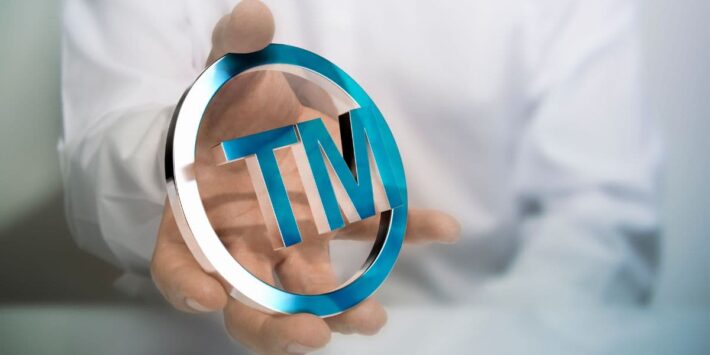Key Differences between IP claims in the Intellectual Property Enterprise Court (the “IPEC”) and The High Court of England and Wales

There are a number of key differences between litigating in the IPEC and the Intellectual Property List in the Business and Property Courts division of the High Court.
The IPEC has historically been a place where the route to final hearing is generally swifter, and both the limit on damages to be paid and legal costs are capped, so it is easier for a participant to anticipate their financial exposure should they lose the case. Anecdotally, and from our experience of litigating in the IPEC, it has become slower over time, and fewer cases are now being brought due to delays in the system.
We have set out below the main areas of difference between key parts of the litigation process:
| IPEC | High Court | |
| Venue | The IPEC hears cases in the Rolls Building of the Royal Courts of Justice (the “RCJ”) in London. It is possible for cases to be listed and heard in other parts of England and Wales upon request. As the IPEC only hears IP claims, the IPEC Judges are generally IP law specialists. | The High Court also generally hears cases in the Rolls Building of the RCJ. It is also possible for cases to be listed and heard in other parts of England and Wales upon request. Whilst there are a few specialist High Court Masters and Judges who hear cases in the Intellectual Property List, it is possible that a non-specialist IP Master or Judge will hear and decide the case. |
| Statements of Case | Parties are required to set out their claims concisely (including all facts and arguments) in their pleadings or statements of case (such as the Particulars of Claim and the Defence). Documents relevant to the claims should also be provided at this stage. As these statements of case are “front-loaded” and require more detail, the costs can be higher for this stage in the IPEC. Generally, parties need approval from the Court to amend their statements of case and this must ideally be done no later than the Case Management Conference (the “CMC”). | In the High Court, whilst the parties are encouraged to also set out their claims as concisely as possible, the statements of case are often less detailed, and there is a requirement in most cases to provide only “Initial Disclosure” (including all documents referred to or relied upon in a statement of case). As such, the statements of case may not be as costly to prepare in the High Court. Parties can agree to amendments to the Statements of Case or apply to the Court if there is a dispute. |
| Disclosure | There is no automatic disclosure provision in the IPEC. However, it is likely that the parties will be ordered, at the CMC stage, to disclose documents which are “adverse” to their case or which “support” the other party’s case. Disclosure is only ordered if absolutely necessary and if the costs do not outweigh the benefits which are likely to be achieved. Generally, where disclosure is ordered, parties must disclose documents related to outstanding issues between the parties that need to be determined at trial. As such, if disclosure is ordered it is done so in a carefully structured and targeted way. | There is a detailed and formal disclosure process for cases in the High Court. Whilst a Master or a Judge could order no disclosure, save for “adverse” documents, it is generally the case that the parties engage in a disclosure process, identifying issues where disclosure will be relevant, the type of documents being searched for, the names of custodians/document repositories which need to be searched and keywords or phrases to narrow these searches. Disclosure can be in electronic and hard copy form (though is more likely to be electronic nowadays due to the way documents are created and stored). This formal process is in addition to the Initial Disclosure both sides need to comply with as part of their statements of case. The breadth of each parties’ disclosure obligations in the litigation will be determined at the Costs and Case Management Conference (“CCMC”). Documents that must be disclosed by the respective parties include: (i) those relied upon; (ii) those that adversely affect their own case or that of the other party; (iii) those that support the other side’s case. It is likely the costs of the disclosure exercise will be far higher in the High Court, and the process is likely to require engaging a third-party disclosure company to collate and store the documents via a platform, enabling them to be reviewed and exchanged. |
| Witness Statements | Witness statements are carefully controlled in the IPEC. It is likely that, if ordered, witnesses will give evidence on specific issues which need to be determined at trial. They are also limited in number per party and in length. This is determined at the CMC. | Generally, the parties suggest which witnesses are required to give evidence for the Court to approve. Recent new rules aim to ensure that witness evidence in the High Court is more focused and succinct. Statements should only deal with facts and disputed issues, and should refer to documents only in limited circumstances and only when known to the witness, as opposed to setting out arguments, commentary, referring to documents the witness did not see at the relevant time or dealing with issues outside of their own knowledge. Despite this, there are often more witness statements and longer statements in the High Court. |
| Expert Evidence | Again, this is very tightly controlled in the IPEC, and expert evidence is rare. If both parties seek expert evidence this will be determined by the Judge at the CMC. | Expert evidence is more common in the High Court, though where possible the Court encourages the parties to have a single joint expert to try and keep costs down. In some cases, parties can each have an expert on the same issue. |
| Length of Trial | IPEC trials generally last either 1 or 2 days. In very limited circumstances a 3-day trial is allowed, but there must be a good reason for this, and this will be decided by the Judge at the CMC. | There are no minimum or maximum trial lengths in the High Court. From experience, they are most commonly around 3 to 5 days in length, but often trials can be much longer, and in some limited cases they can last for a number of weeks. The length of a trial is dependent upon the number of witnesses and the number of issues to be de determined at trial. |
| Settlement/ADR | Settlement and ADR are encouraged, but generally parties are more likely to push ahead to the CMC prior to engaging fully with settlement and/or ADR. This is in part due to the costs of the proceedings and liability to pay the other side’s costs being generally lower than in the High Court. Despite this, there are still only a very small number of cases that do not settle before trial. | Settlement and ADR are encouraged, and parties are also encouraged to request a stay before the CCMC to try and engage in settlement/ADR. Due to the unlimited costs (subject to approval of the winning party’s costs budget) and damages in the High Court, parties tend to be keener to try and settle the claims at an earlier stage. Again, only a very small number of cases do not settle before trial. |
| Time Frame | IPEC cases historically could be resolved within a period of 12 months. However, due to the lack of availability of Judges to hear cases (note there are fewer Judges who sit in the IPEC) this is increasing. | Due to the various required procedures up to and including the CCMC, cases invariably take much longer in the High Court. Usually, cases are resolved within 12 to 24 months, but some cases can take much longer to reach trial. |
| Damages | The IPEC has a £500,000 cap on damages or an account of profits. Claims where the damages or an account of profits figure is less than £10,000 will take place in the small claims track (where recovery of costs is minimal). | There is no cap on the damages or an account of profits figure in the High Court. |
| Costs | Costs recovery in the IPEC is limited to £60,000 for determination of liability. Costs are determined by a sum for each stage of the proceedings up to a total maximum of £60,000. A further £30,000 is permissible for an inquiry as to damages, though in reality these are rare as parties tend to agree this without a further hearing. As such, there is no formal costs budgeting process in the IPEC. In very rare cases of very poor behaviour by a party, or where the terms of a Part 36 Offer are not beaten, the costs cap can be lifted. Costs orders are generally less than the £60,000 cap. | Costs in the High Court are not capped and are, technically, unlimited. However, the High Court generally requires the parties to provide costs budgets to be approved at the CCMC (unless the parties agree not to). In certain circumstances a separate Costs Hearing will be required to resolve issues with budgets and approve these. Parties are encouraged to try and agree these budgets to quicken the process and save costs. In limited circumstances, an approved costs budget can be increased (or decreased) by the Judge. Generally, once approved, a party cannot claim more costs for each stage of the proceedings than the costs in the approved costs budget. Due to the nature of High Court claims, costs budgets will be substantially higher than in the IPEC and parties can seek whatever costs they consider to be reasonable and proportionate, subject to the Master or Judge at the CCMC agreeing to the same. |




